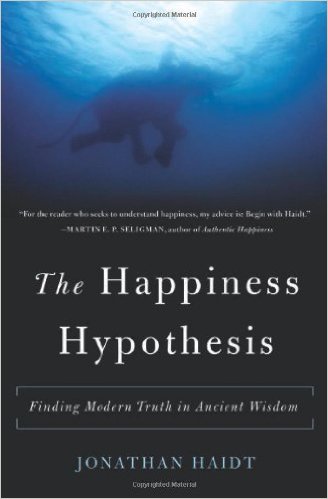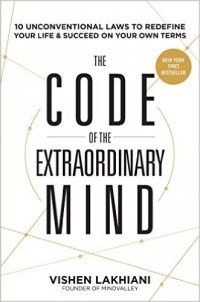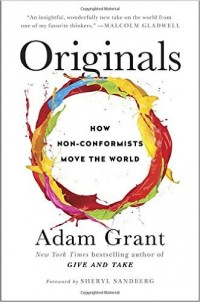The Happiness Hypothesis: Finding Modern Truth In Ancient Wisdom
By Jonathan Haidt
About
In his book The Happiness Hypothesis, Jonathan Haidt digs through ancient wisdom and writings about how to live a good life — and then puts those teachings into perspective for the modern world we live in today. He summarizes his findings based on what’s common throughout various texts from around the world, as well as what’s supported by science.
Here’s what you’ll learn about in this summary:
- Why we do what we do
- A formula for happiness
- How to use the formula to increase happiness and purpose in life
Crucial quotes
“Each chapter is an attempt to savor one idea that has been discovered by several of the world’s civilizations – to question it in light of what we now know from scientific research, and to extract from it the lessons that still apply to our modern lives.”
“Happiness comes from within, and happiness comes from without. We need the guidance of both ancient wisdom and modern science to get the balance right.”
“I don’t believe there is an inspiring answer to the question, “What is the purpose of life?” Yet by drawing on ancient wisdom and modern science, we can find compelling answers to the question of purpose within life. The final version of the happiness hypothesis is that happiness comes from between. Happiness is not something that you can find, acquire, or achieve directly. You have to get the conditions right and then wait.”
Tweetable summary
Ancient wisdom about finding happiness and purpose are just as applicable in the modern world as they were back then.
Links
Downloads
![]()
This summary is for subscribers only…
Still not a member? Subscribe to start reading or listening to this book summary now.
Already a member? Log in here






